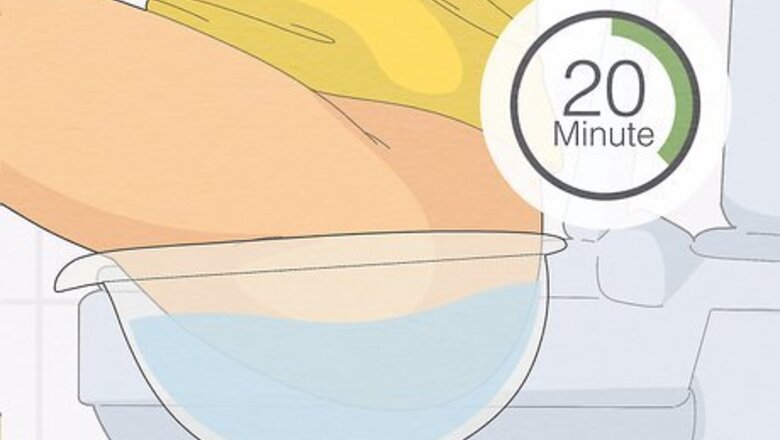
views
- Try home remedies, like sitz baths and hemorrhoid cream, to shrink hemorrhoids fast.
- Use ice packs and pain medicine to reduce swelling and irritation.
- Take fiber supplements and drink lots of water to prevent the hemorrhoids from getting worse.
- If your hemorrhoids don’t respond to home remedies after 7 days, make an appointment with your doctor.
Home Remedies
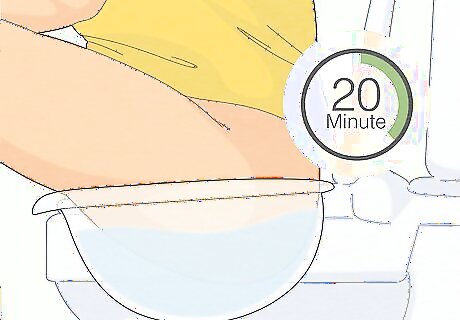
Take a sitz bath. A sitz bath is a warm water bath for the buttocks and hips. Place enough warm water in a big tub (that can fit over a toilet seat) or sit in a regular bathtub with a few inches of warm water. Experts recommend a 20-minute sitz bath after each bowel movement and 2 or 3 times a day. This can relieve itching, irritation, and spasms of the sphincter muscle. Take care to gently pat the anal area dry afterward. Do not rub or wipe hard as this may cause bleeding and irritation. For some people, adding Epsom salt makes the sitz bath even more soothing. Add the amount suggested on the package and stir the salt until it is dissolved completely.
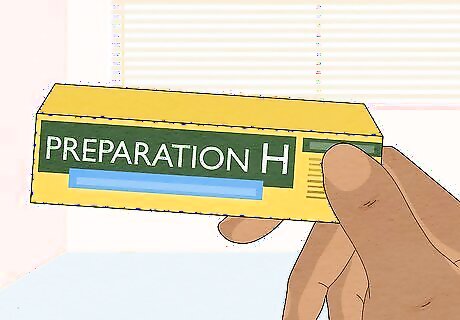
Use over the counter hemorrhoid cream. These can help relieve the pain and itchiness that come with hemorrhoids. Hemorrhoid ointments like Preparation H contain phenylephrine, which is a vasoconstrictor that constricts your anal blood vessels. Read the instructions on the package and follow them closely to shrink hemorrhoids. The medicines in these creams and ointments can cause skin damage over time, so don't use them for longer than suggested on the packaging (which is usually about 1 week).
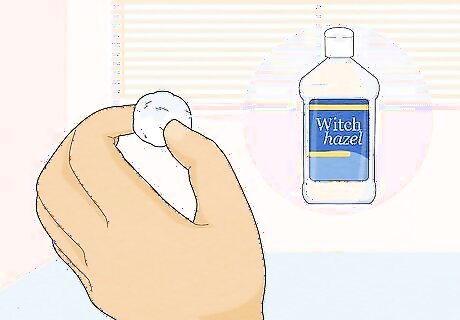
Apply witch hazel extract to your hemorrhoids. This natural plant extract has astringent properties that help to relieve itching, discomfort, and irritation. Soak a cotton ball in witch hazel and apply it to your hemorrhoid, or buy witch hazel pads and gently apply them to your bottom. You can also find topical creams containing witch hazel. When you feel the hemorrhoids itching, apply more witch hazel as needed.
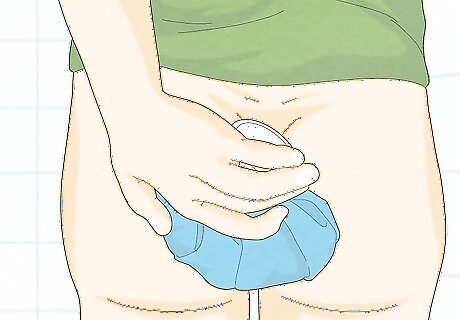
Use an ice pack to reduce swelling. Wrap an ice pack in a towel and place it against your anal area for about 20 minutes. This causes the veins to constrict, thus reducing pain and swelling. Apply ice for no longer than 20 minutes at a time. You can use an ice pack as often as you need to throughout the day. Just keep it to 20 minutes at a time to prevent your bottom from getting too cold.
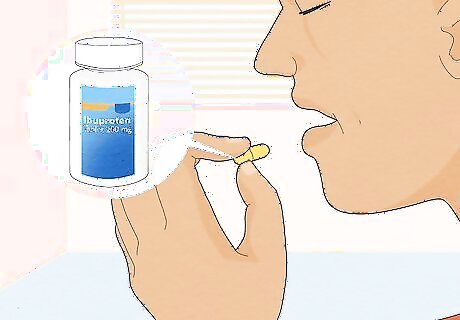
Take a pain reliever to help soothe irritation and swelling. Over the counter medicines like acetaminophen, ibuprofen, naproxen, or aspirin will help decrease your pain and irritation levels. Keep these medicines handy, and follow the dosage instructions carefully whenever you take them. If you are on a blood thinner, talk to your doctor before taking aspirin.
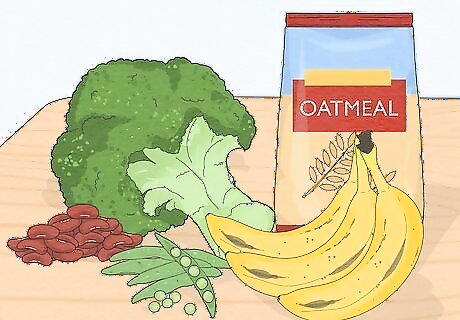
Take fiber supplements. Fiber helps stimulate your bowel movements and make you less constipated. If you don’t get enough fiber in your diet, talk to your doctor about taking fiber supplements. This will help you avoid straining on the toilet, which increases the likelihood of developing hemorrhoids. Try eating high-fiber foods throughout the day, like broccoli, beans, wheat, whole grains, and fresh fruit.
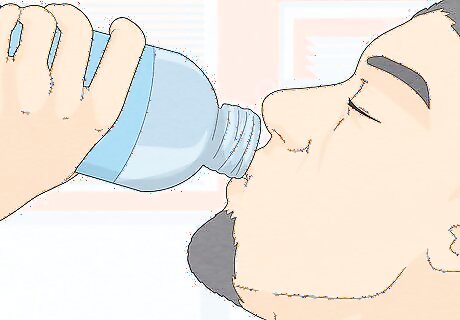
Drink water throughout the day. The more hydrated you are, the softer your stool will be. Keep a water bottle handy, and drink out of it whenever you’re thirsty. Avoid dehydrating liquids, like alcohol, which can make your stool harder. Hard stool tends to irritate hemorrhoids and make them worse.
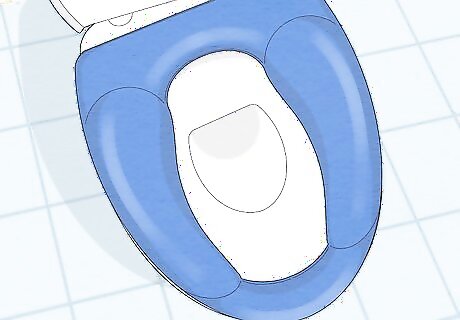
Go to the bathroom when you need to, and avoid straining. Straining to have a bowel movement is the leading cause of hemorrhoids. Don't go unless you have to, and don't sit on the toilet longer than 5 minutes. Straining is also called the Valsalva maneuver. During the strain, peripheral venous pressures become increased, causing the dilated veins to become more painful. Try placing a cushion on the toilet. Sitting on a cushion rather than a hard surface helps reduce the swelling of existing hemorrhoids and prevents the formation of new ones. Lifting your feet on a stool while going to the bathroom can also help prevent straining and hemorrhoids. Instead of wiping with dry toilet paper, use wipes or wet toilet paper instead. This will help prevent further irritation.
Medical Treatments
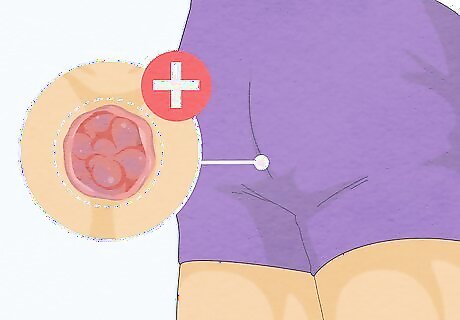
Seek medical attention for severe hemorrhoids. If moderate rectal pain persists for more than a week after home treatment, call your doctor. You should also see a doctor for severe pain or if tissue bulges out of the anus and remains that way after 3 to 7 days of home treatment. Use a mirror to examine your external hemorrhoids. If they are bigger than a quarter, seek medical attention immediately. Additionally, see a doctor if your hemorrhoids are so large that they block your bowel movements. In the elderly, hemorrhoids are often more severe and less responsive to at-home remedies. If you are older, it’s a good idea to get medical help right away.
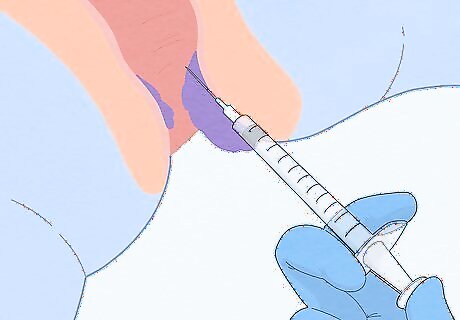
Discuss non-surgical treatment options with your doctor. Hemorrhoids that won't go away after you've tried at-home treatments can be removed using a variety of treatment methods. Discuss the following options with your doctor and decide which one is right for your situation: Rubber band ligation. A band is placed around the hemorrhoid to cut off the supply of blood, causing it to eventually fall off. Injection sclerotherapy. This is the most common non-surgical hemorrhoid treatment. A fluid is injected into the hemorrhoidal tissue, causing it to shrink. Infrared photocoagulation. A probe is used to irradiate the hemorrhoids that don't respond to other treatments. Electrotherapy. An electric current is applied to your hemorrhoids to make them shrink.
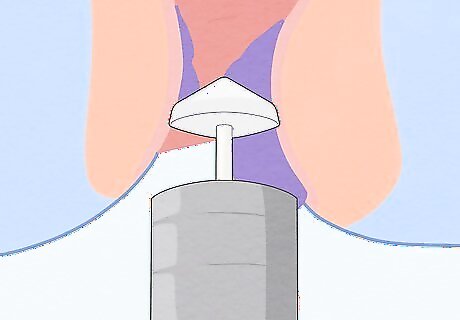
Consider having a hemorrhoidectomy. This is the surgical removal of the hemorrhoids and surrounding blood vessels that could lead to recurrence. Recovery time after surgery normally takes just a few days. Other surgical options for severe hemorrhoids include: Stapled haemorrhoidopexy. External hemorrhoids are surgical stapled back inside of the anus. Haemorrhoidal artery ligation. Stitches are used to cut the blood supply to the hemorrhoids and cause them to shrink.














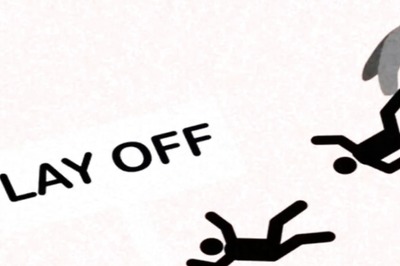




Comments
0 comment